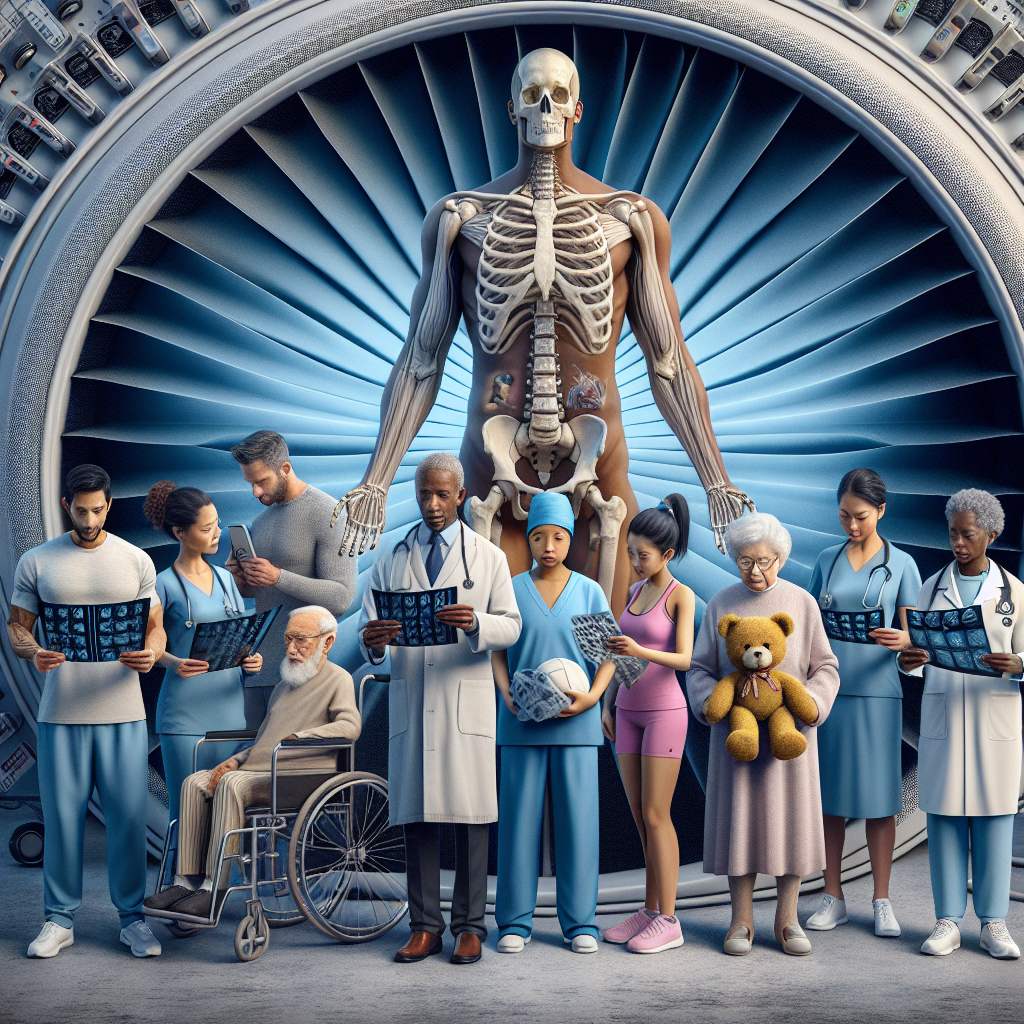Introduction
Radiology is a vital field in the medical industry that plays a significant role in diagnosing and treating various health conditions. It involves the use of medical imaging techniques to visualize and analyze the internal structures of the body, enabling healthcare professionals to make accurate diagnoses and develop effective treatment plans. Whether you’re experiencing unexplained symptoms or need routine screenings, radiology can provide valuable insights into your health.
Table of Contents
- Types of Radiology
- Benefits of Radiology
- Common Uses of Radiology
- Frequently Asked Questions
- Conclusion
Types of Radiology
Radiology encompasses various imaging techniques that help visualize different parts of the body. Here are some common types of radiology:
1. X-ray
X-rays use a small amount of radiation to create images of bones, organs, and tissues. They are commonly used to detect fractures, infections, tumors, and lung conditions.
2. Magnetic Resonance Imaging (MRI)
MRI uses a powerful magnetic field and radio waves to produce detailed images of the body’s organs and structures. It is particularly useful for evaluating soft tissues such as the brain, spinal cord, and joints.
3. Computed Tomography (CT) Scan
A CT scan combines X-rays and computer technology to create cross-sectional images of the body. It provides detailed information about internal organs, blood vessels, and bones, making it valuable for diagnosing conditions like cancer, cardiovascular disease, and trauma.
4. Ultrasound
Ultrasound uses high-frequency sound waves to create real-time images of organs and tissues. It is commonly used during pregnancy to monitor fetal development, but it can also evaluate other parts of the body, such as the abdomen, heart, and blood vessels.
Benefits of Radiology
Radiology offers several benefits that make it an essential tool in healthcare. Here are some key advantages:
- Accurate Diagnoses: Radiology provides detailed images that help healthcare professionals identify and diagnose various conditions, ranging from fractures to cancers. These images offer valuable insights into the body’s internal structures, enabling accurate diagnoses.
- Non-Invasive: Many radiology procedures are non-invasive, meaning they do not require incisions or anesthesia. This makes them safer and less risky compared to invasive procedures.
- Early Detection: Radiology allows for the early detection of diseases and conditions, even before symptoms become apparent. Early detection increases the chances of successful treatment and improves patient outcomes.
- Guidance for Treatment: Radiology images can guide healthcare professionals in planning and performing treatments. For example, they can help surgeons navigate during minimally invasive procedures or target specific areas during radiation therapy.
- Monitoring Progress: Radiology can be used to monitor the progress of a treatment or the healing process. Repeat imaging can show changes in the body over time, helping healthcare professionals assess the effectiveness of interventions.
Common Uses of Radiology
Radiology is utilized in various medical scenarios to aid in diagnosis, treatment, and monitoring. Here are some common uses of radiology:
- Diagnosing fractures, dislocations, and other bone abnormalities
- Detecting infections, tumors, and cysts
- Evaluating the heart and blood vessels for conditions like coronary artery disease or aneurysms
- Assessing the brain for strokes, tumors, and other neurological conditions
- Guiding the placement of medical devices, such as pacemakers or stents
- Monitoring fetal development during pregnancy
- Screening for breast cancer using mammography
Frequently Asked Questions
1. Is radiology safe?
Yes, radiology is generally safe. The radiation exposure from X-rays and CT scans is minimal, and healthcare professionals take precautions to ensure patient safety. However, if you are pregnant or suspect you may be pregnant, it’s important to inform your healthcare provider before undergoing any radiology procedures.
2. Are there any risks or side effects associated with radiology?
While radiology is considered safe, there are some potential risks and side effects associated with certain procedures. These may include allergic reactions to contrast agents used in some imaging tests, discomfort during certain procedures, or rare instances of radiation-related complications. Your healthcare provider will discuss any potential risks with you before the procedure.
3. How should I prepare for a radiology procedure?
The preparation for a radiology procedure depends on the specific test being performed. Your healthcare provider will provide you with detailed instructions, which may include fasting for a certain period, avoiding certain medications, or wearing comfortable clothing. It’s important to follow these instructions to ensure accurate results.
4. How long does a radiology procedure take?
The duration of a radiology procedure varies depending on the type of test being performed. X-rays and ultrasounds are usually quick, taking only a few minutes. However, more complex procedures like MRIs and CT scans can take longer, typically ranging from 30 minutes to an hour.
Conclusion
Radiology is an essential component of modern healthcare, providing valuable insights into the body’s internal structures and helping healthcare professionals diagnose and treat various conditions. Whether you need a routine screening or have unexplained symptoms, radiology can play a crucial role in your healthcare journey. By utilizing advanced imaging techniques, radiologists can provide accurate diagnoses, guide treatments, and monitor progress. Embrace the power of radiology and take control of your health today.




